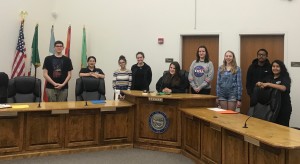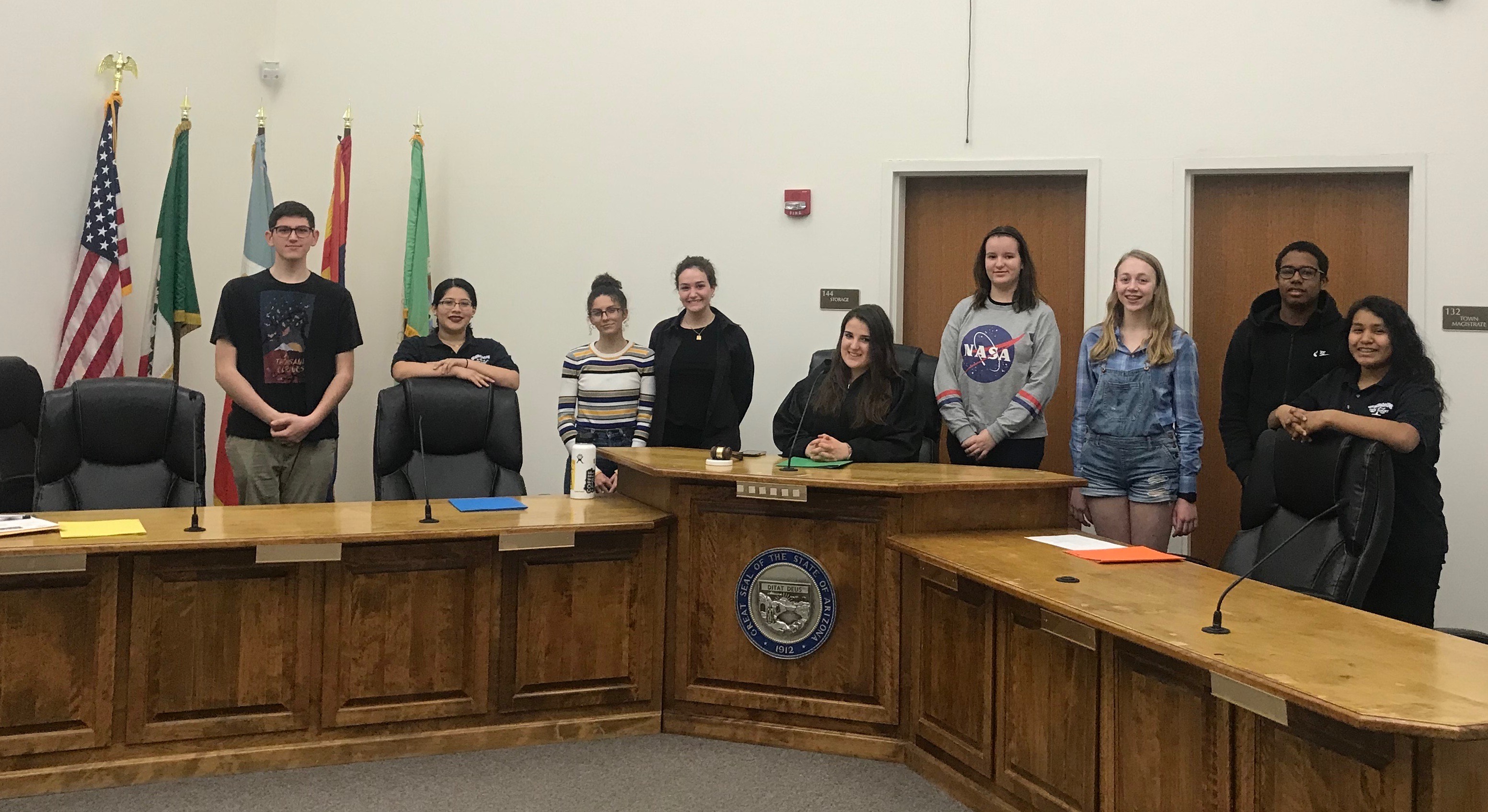By Taylor Conley
Knock! Knock! It’s gavel-time! Some TPA students choose to spend their precious time attending Guadalupe Teen Court every Wednesday after school. Unlike other teen courts, GTC is not associated with any particular school and welcomes students from all over the area.
Guadalupe Teen Court consists of case-days and non-case-days. On a day without hearings, we may meet lawyers or judges. On one occasion, Dani Delgado, TPA’s speech and debate coach, led a presentation on the USA’s foreign affairs, particularly about US-Iran tensions. Presentations like these help crystallize events like these for people who do not understand. Throughout high school, Dani was part of GTC herself, and now helps as an alumna leader. In addition, GTC has visited other courts and has even gone to Washington DC.
Violeta Panayotova, a junior and avid Teen Court attendee, said, “Teen Court is a great opportunity to get out of one’s comfort zone and pursue unlimited amounts of resources. Because of Teen Court I was able to go to Washington D.C. and watch oral arguments in the Supreme Court. Through Teen Court I am able to learn and understand not only what it takes to be an active member of my community but also how to be a critical thinker. By joining the Guadalupe Teen Court one can open their worlds to a new path that leads to beautiful and unforeseen destinations and a path that both teaches and inspires people to be better and to care about the others around them.”
During a case, we all sit in the Guadalupe Town Hall, with some on the stands. The offenders, who are teens from all different schools, receive a chance to restore the situation and improve themselves. We deal with cases like shoplifting, assault, and trespassing. Each case is different, so we must consider different mitigators and instigators, such as their family dynamics or school life.
 After listening to the defendant give their side of the story and asking questions about them, the jury discusses the situation and its pros and cons once the defendant and their family exit the room. The foreperson, a judge-like figure, guides and moderates the discussion. The entire courtroom chooses the consequences. We do not give serious punishments, such as jail-time like an adult courtroom, but rather community service or life skills classes. We may also assign jury duty on a case-day. During most cases, we need to think critically in order to come up with the right solutions. If the defendant is a talented artist, we may assign a project describing the effects of their crime with pictures.
After listening to the defendant give their side of the story and asking questions about them, the jury discusses the situation and its pros and cons once the defendant and their family exit the room. The foreperson, a judge-like figure, guides and moderates the discussion. The entire courtroom chooses the consequences. We do not give serious punishments, such as jail-time like an adult courtroom, but rather community service or life skills classes. We may also assign jury duty on a case-day. During most cases, we need to think critically in order to come up with the right solutions. If the defendant is a talented artist, we may assign a project describing the effects of their crime with pictures.
Guadalupe Teen Court began when Mayor Jimenez of Guadalupe asked Judge Lilia Alvarez to help start the youth program. At the time, Lilia Alvarez was positioned as Presiding Judge of the Guadalupe Municipal Court. Judge Alvarez gladly took on the opportunity, roughly five years ago, and got started working on the project. In fact, teen offenders are drastically less likely to commit another crime after attending Teen Court.
Michelle Hirsch took over GTC when Judge Alvarez chose to move higher up the circuit. Ms Hirsch, who now helps organize the group, emphasizes the importance of teenagers leading the courtroom. “Teens understand teens. You guys ask questions that are very relevant to the teen offender’s situation. I think you can just understand their perspectives better.” Having peer judement is often more just.
One year into GTC’s run, Ms Hirsch decided to begin helping. Before then, she was working as a librarian at the Guadalupe Library. Her many connections help us receive interesting opportunities that we wouldn’t normally be able to experience.
We get to gain more knowledge on how law works in our state and better understand what goes on in the world. Learning about the law creates more knowledgeable citizens, which improves society. We encourage other youth interested in law and helping their communities to try attending Teen Court, because helpful teenagers coming is what keeps the program alive.
